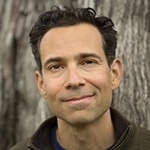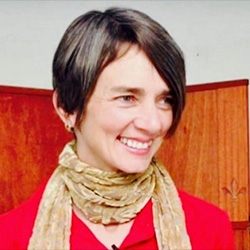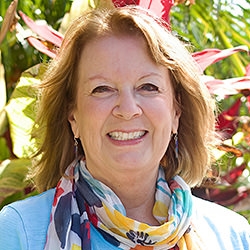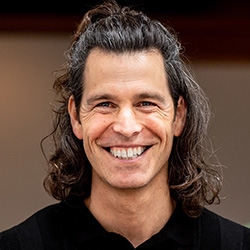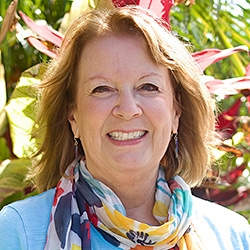
Search Results: anger
-
Past hurt and pain can get triggered even when it doesn't have much to do with the present. When that happens we can gain perspective by self reflecting, engaging self empathy, grounding an "anchor", noticing the present-moment safety, naming needs and making requests.
-
Where do you feel desperation, resentment, anger about your partner's choices? What do you want to demand of them? Rather than looking for what they're suppose to do, look for your feelings and needs, how would you would respond if you trusted your needs could be met without your partner, and what you choose to do given what your partner offers and does not offer.
-
Transform arguments with these steps: take responsibility for your mind, increase your capacity for discomfort, slow down, show up and remember your values, offer understanding, take risks, and speak from your heart. Learning new skills takes time, energy and effort. However, it’s entirely possible to radically shift the way we communicate. The key is patience, persistence, and taking it one step at a time.
-
Here's guidance on how to approach your inner experience when triggered or stuck in a distressing life experience. Self-Compassion in life can be experienced as: "There is room for life experience in me. There is an open space for ‘what is’ to be fully present in my inner experience". This exercise is more about tracing your felt experience than verbalizing it.
-
With practice we can prevent reactivity from overtaking and harming: notice signs of reactivity, bring compassion to it, see reactivity as the misperception of threat and a distortion of what's happening, plus engage and pursue connection and the clarity to weaken reactive impulses. In taking responsibility like this overtime, you can live from your values and from care. And life can get easier for you and others around you.
-
Hearing actions that lead to living beings' harm, you may notice that some people believe that the needs of some must come at the cost of others. This view arises from fear and an economic system meant to promote and feed off false scarcity. When struggling with this, grieve, receive support, and notice your feelings show you certain values matter to you. From this sense of purpose you can find where you can be of most service.
-
Duke Duchscherer shares that Restorative Circles have the ability to transform relationships. Groups may start with feelings of worry, anxiety, fear, anger, and even hatred. The dialogue process supports a shift to more ease, connection, and trust.
-
October always makes me think about Marshall Rosenberg, the founder of Nonviolent Communication. He was born October 6, 1934. If he were still alive today (he died February 7, 2015), he would be 89 years old!
-
“Nonviolence” is not just a political tactic. It is a “soul force,” a courageous and compassionate stand in the face of what seems to us unjustly unequal, oppressive, and violent. It is the force of love meeting and transforming what appears to not be love.. It is the force of love meeting and transforming what appears to not be love. It is speaking and listening with courage, compassion, and an open heart and mind and rooted in our truth in a way that bridges understanding. And doing so without demand nor trying to convince -- all in the face of any anger, fear, oppression, inequality, violence or disagreement.
-
- Welcome unpleasant feelings and meet their flow in and around the body
- Discover how you can enjoy Anger as a beautiful life force
- Realize insecurity and depression as a door to the core of your humanity
- Know how to use fear to firmly connect to your life and strength
-
Whether its pandemics, climate change, damage to the environment or other massive challenges that humanity faces, what are we to do if we can't agree on even the most basic information and knowledge? From empathic understanding we can focus on shared, universal human needs (where there is no conflict or disagreement) underlying our perceptions, and feelings. Then we can see if there are ways we can agree on to meet those needs.
-
- Learn how to transform NVC into a tool for systemic awareness and healing
- Examine the influence of difference, and uncover pathways that strengthen its capacity
- Learn to receive and offer feedback on impact in situations fraught with power differences
- Explore specific ways in which NVC systemically supports the full flowering of humanity
- Delve into the dynamics of cultural differences, and discover how NVC can systemically contribute to a liberation perspective
-
We only have this decade to make radical changes to avert crossing over into an unlivable Earth. What's essential is a critical mass of people with capacity to respond to many enormous, daunting social-environmental challenges. This means on a wider scale, responding to conflict, fear, hate, injustice and violence with the ability to see our commonality underlying our differences. And to feel part of a larger whole so we can birth natural caring, togetherness, and cooperation.
-
Rachelle Lamb invites us to consider how our well being is impacted by what we choose to put at the center of our narrative regarding our needs. And how that affects whether or not we get closer to truly serving life and compassion...
-
-
Why is it so difficult to change our patterns even when we want to, even when we experience shame or despair about them? Arnina Kashtan offers some of the common pitfalls and concrete steps to overcome them in the future.
-
- Integrate the underlying principles of NVC into your daily life
- Create a daily practice of self empathy and connecting to needs
- Strengthen your own personalized set of NVC skills
- Increase your sense of power in the world
- Deepen connection with yourself and those in your life
-
Read how an American Buddhist NVC teacher with Jewish roots reflects on how any dehumanization in the Israel-Hamas conflict can be used to justify all kinds of violence that can escalate for generations. With acknowledgment of the complexities, his desire is for us to bring in respect, dignity and peace -- for both Israelis and Palestinians. He emphasizes compassionate advocacy of all humanity amid the ongoing crisis.
-
- Understand the destructive dynamics that keep love from blossoming
- Learn how to deal with expectations, disappointments, and judgment
- Transform guilt, shame, and obligations into a flow of creativity
- Find out what tiny details are preventing natural love to flow!v
-
Trainer Tip: Mary shares an experience about accepting responsibility for her actions and how that lead her to greater choice and freedom.



